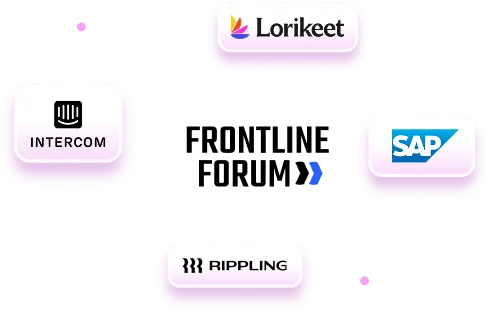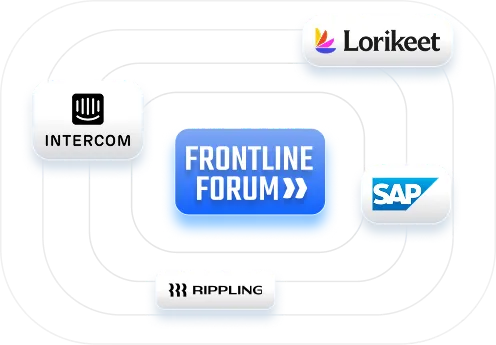Managing customer delays can be one of the most frustrating challenges for teams responsible for onboarding. Despite setting clear expectations during the kickoff, many teams still face delays due to late responses from customers, as pointed out by Dinesh Venkat, Onboarding Manager at Spendflo, in a recent Preflight community discussion.
In this blog post, we’ll explore some of the strategies shared by experts in the field to streamline your onboarding process and effectively manage customer delays. These insights are drawn from real-world experiences, ensuring that they are both practical and actionable.
The challenge: managing customer delays
Approximately 60% of project delays during onboarding stem from late customer responses. This is despite the fact that expectations are clearly set at the beginning of the project. This issue isn’t unique, as many teams struggle with similar challenges.
Connor McKay from Push Operations echoed this sentiment, expressing his own team's difficulties in managing customer delays. The question, then, is how to address this persistent issue effectively?
Setting the right expectations from the start
One of the most effective strategies to manage delays is to set clear expectations right from the start. As Sarah Still from Qualio pointed out, her team implemented Statements of Work (SOWs) that clearly outline the timeline and responsibilities the customer must adhere to. The SOW is signed along with the contract, and customers are charged for additional onboarding services if they exceed the agreed-upon timeframe.
This approach has yielded positive results for Sarah’s team, making their customer onboarding projects smoother. The key takeaway here is the importance of having sales teams set expectations upfront, ensuring that customers are fully aware of their responsibilities before the onboarding process begins.
Actionable tip: Include a detailed SOW in your onboarding contract that outlines the customer’s responsibilities, including timelines and meeting attendance. Ensure that sales teams emphasize these expectations during the sales process.
Implementing an "On Hold" process
Brandon Goldman from Contentful shared another effective strategy: the "On Hold" process. If a customer becomes unresponsive or low-touch, his team reaches out twice before sending a third message, indicating that the project will be placed on hold if there is no response by a specified date. The assigned resource is unassigned, and when the customer is ready to re-engage, it takes five business days to assign a new resource.
This approach has helped put gentle pressure on customers to respond without being overly forceful. Importantly, Brandon noted that his team does not extend engagements just because a project was put on hold, which helps maintain a sense of urgency.
Actionable tip: Establish an "On Hold" process for unresponsive customers. Clearly communicate the implications of going on hold, including any delays in reassigning resources, and ensure customers understand that the overall project timeline will not be extended.
Using commercial incentives to drive customer commitment
For small to medium-sized businesses (SMBs), Srikrishnan Ganesan from Rocketlane shared a unique approach: charging an extra fee that is refunded if the customer turns up well-prepared for all their meetings and completes the onboarding on time. This financial incentive ensures that customers are committed to the onboarding process.
For mid-market (MM) or enterprise clients, Sri emphasized the importance of setting the right intensity and expectations at kickoff. Rocketlane uses a kickoff deck resource to help hold customers accountable, ensuring they understand the importance of their role in the onboarding process.
Actionable tip: Consider implementing a refundable fee structure for SMB clients to encourage timely participation in onboarding. For larger clients, focus on strong expectation-setting and accountability measures during the kickoff meeting.
The role of Customer Success Managers (CSMs)
Brandon also mentioned the critical role that Customer Success Managers (CSMs) play in managing customer delays. His team leans on CSMs to keep tabs on customers and remind them of their Professional Services (PS) commitments. This collaboration between CSMs and the PS team helps ensure that customers remain engaged throughout the onboarding process.
Actionable tip: Foster close collaboration between your onboarding and customer success teams. Ensure that CSMs are actively involved in monitoring customer engagement and are prepared to step in if delays occur.
Managing customer delays during the onboarding process is a common challenge, but it can be addressed with the right strategies. By setting clear expectations, implementing an "On Hold" process, using commercial incentives, and leveraging the role of CSMs, you can streamline your onboarding process and reduce delays.
As these experts from the Preflight community have shown, the key is to be proactive and transparent with your customers. By doing so, you not only improve the onboarding experience but also set the stage for a successful long-term partnership.
Join the conversation
Join the Preflight Community to delve deeper into these insightful discussions, learn from global leaders, and actively contribute to the conversation. Preflight is a vibrant community of over 3000 leaders and practitioners in customer onboarding, implementations, and Professional Services.


.avif)
.avif)





















.webp)